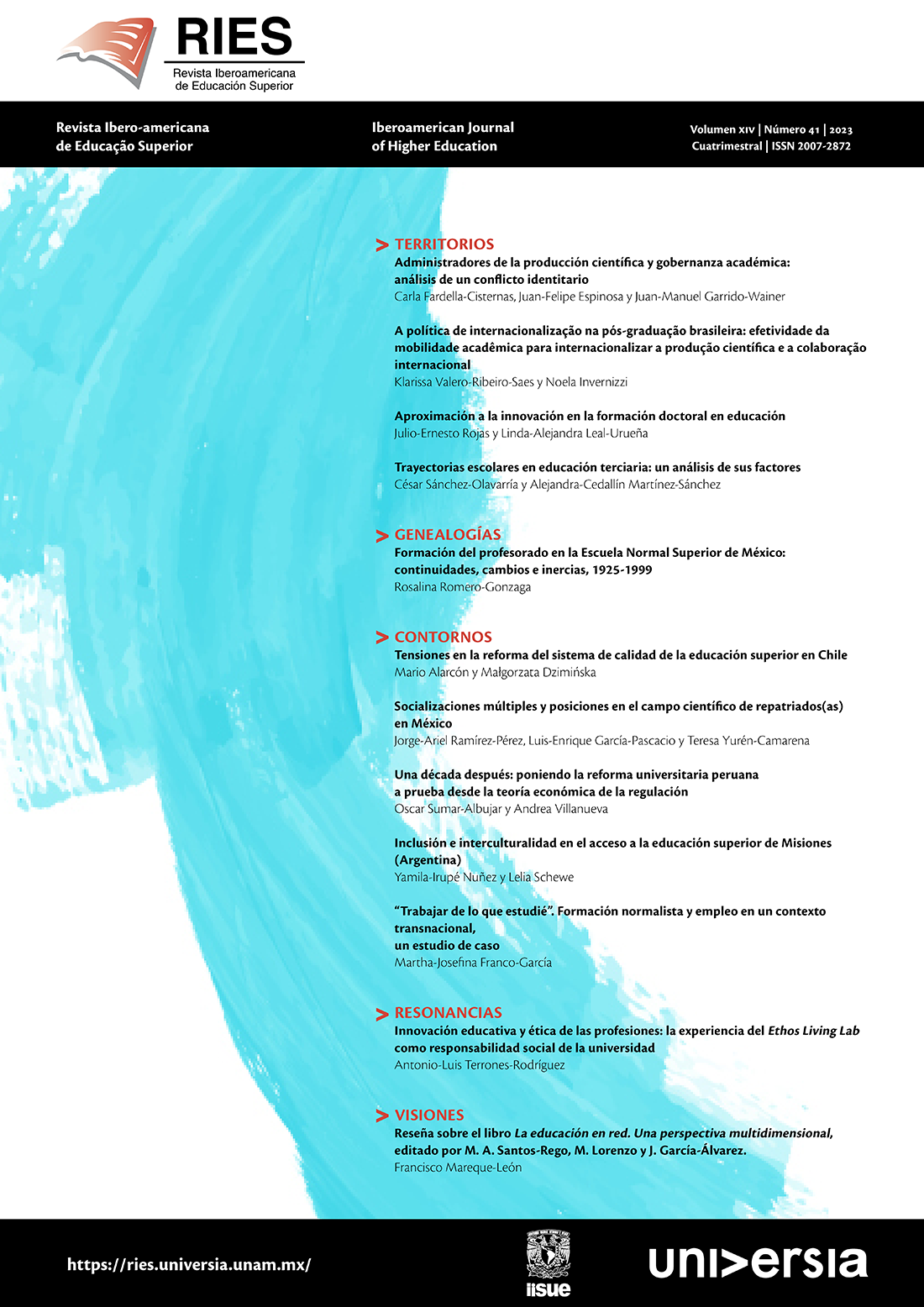A decade later: peruvian university reform put to the test from the perspective of the theory of economic regulation
DOI:
https://doi.org/10.22201/iisue.20072872e.2023.41.1584Keywords:
access to education, accreditation, quality, educational market, PeruAbstract
Starting in the 1990s, the number of universities in Peru increased dramatically. This was perceived as a bad sign for quality and led to a reform –implemented in 2012– that included a restriction on creating new universities and the standardization of the existing ones. While this reform is considered positive, we believe it is relevant to analyze it. Our initial findings suggest that the reform did not have a clear economic justification, has not had satisfactory results, and has been influenced by interest groups. A future reform should seek "optimal" quality but combined with equitable access to education.



